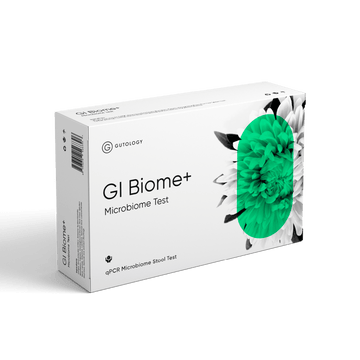Your gut health can have an effect far beyond your digestive system. The food you eat, your stomach acid, bacteria and mineral levels - all impact how your body functions.
Key areas
There are three key areas that can indicate that things aren’t quite right with your gut. These include your:
- Digestive system
- Brain
- Skin, hair and nails
Recently, gut health – in particular the health of our gut bacteria – has also been linked with a wide variety of other conditions, affecting many different parts of the body including:
- Joints
- Lungs and respiratory tract
- General immunity
- Cardiovascular disorders
- Obesity
- Diabetes
Let’s look at each area in depth.
Digestive system
Naturally, an unhealthy gut might be expected to reveal itself through discomfort in the digestive tract.1,2 Some of the more obvious indicators of things not being quite right are:3
- Nausea and vomiting
- Lack of appetite or excessive appetite
- Inflamed or sore tongue
- Mouth ulcers, swollen gums
- Reflux, heartburn and gastritis
- Bloating, belching and flatulence
- Diarrhoea or constipation
- Abdominal pain and cramping
- Worms in the stools
- Pain during defaecation
- A feeling of incomplete emptying after defaecation
- Piles (haemorrhoids)
But many signs of an unhealthy gut don’t occur in the digestive tract itself. You may experience some of the following as well as – or even instead of – these obvious gut problems.
Brain
The gut constantly sends information back to the brain informing it of the current situation down below.4 If there is infection, inflammation, an imbalance in gut bacteria, or simply over-eating, this information will be passed on to the brain.4,5 These signals from the gut can trigger feelings of:3
- Difficulty concentrating
- Low mood
- Anxiety
- Restlessness
- General unease
- Persistent fatigue
- Insomnia.
Poor gut health, particularly the balance of gut bacteria, can also be a factor in a wide range of conditions affecting the brain and nervous system,6 such as migraine,7 neuropathies,8 Alzheimer’s9 and Parkinson’s diseases,9 epilepsy,9,10 multiple sclerosis,11 myelitis,12 autistic spectrum disorders,13,14 and anxiety5 to name just a few.
Skin, hair, nails
Problems in the gut have long been known to show in the skin, hair and nails.15–18 You might experience:
- Skin rashes, spots and acne
- Sores and ulcers
- Changes in skin colour
- Rosacea (red cheeks)
- Eczema
- Psoriasis
- Dermatitis
- Broken veins
- White spots or ridges on the nails
- Loss of hair colour or loss of hair
Improving gut health can often result in improved skin health into the bargain.
Joints
Poor gut health can trigger aches and pains in the joints.19,20 Studies have shown that improved gut health can translate to improvements in arthritis and similar conditions.21
Lungs and the respiratory tract
If you often succumb to colds and ‘flu, or you suffer from asthma this too could be a sign of poor gut health.22–24
General immunity
The gut has been shown to play a major role in our susceptibility to infections, response to vaccination, risk of developing autoimmune diseases,11 cancers and any conditions associated with inflammation.25–27
Cardiovascular disorders
Conditions such as high blood pressure, heart disease, heart failure and high cholesterol have all been linked with the health of our gut, particularly our gut bacteria.28,29
Obesity
The gut has many roles in development of obesity, including release of hormones that control appetite, controlling cravings, how we extract energy and nutrients from our food, and, most importantly how our gut bacteria can influence all of these.30,31
Diabetes
Our ability to control our blood sugar levels is closely tied in with how our gut functions, in particular how we digest carbohydrates and how our digestive system stimulates hormones that control how the sugars released from those carbohydrates are handled.32,33 Further, it has been discovered that people with diabetes may have a different population of gut microbes than those without diabetes.34
Summary
Is there no area of our bodies that is not influenced by our gut health? It’s beginning to look like the answer to that question is: No!







